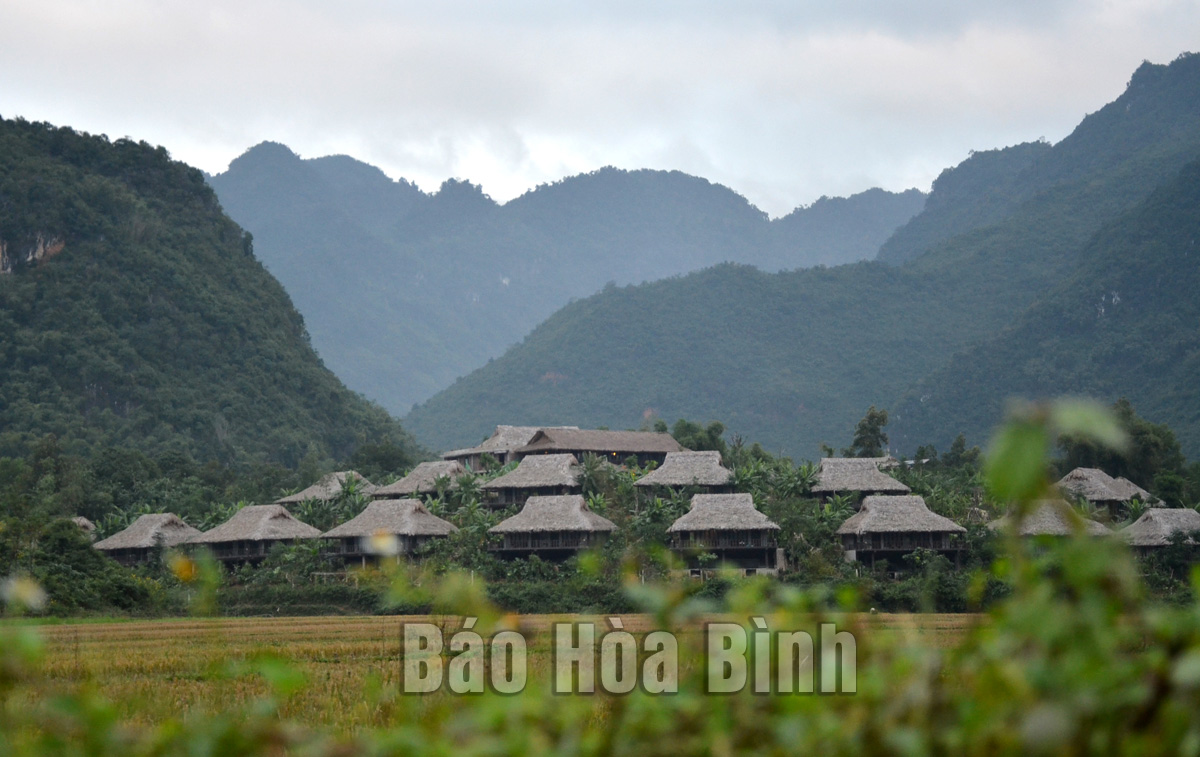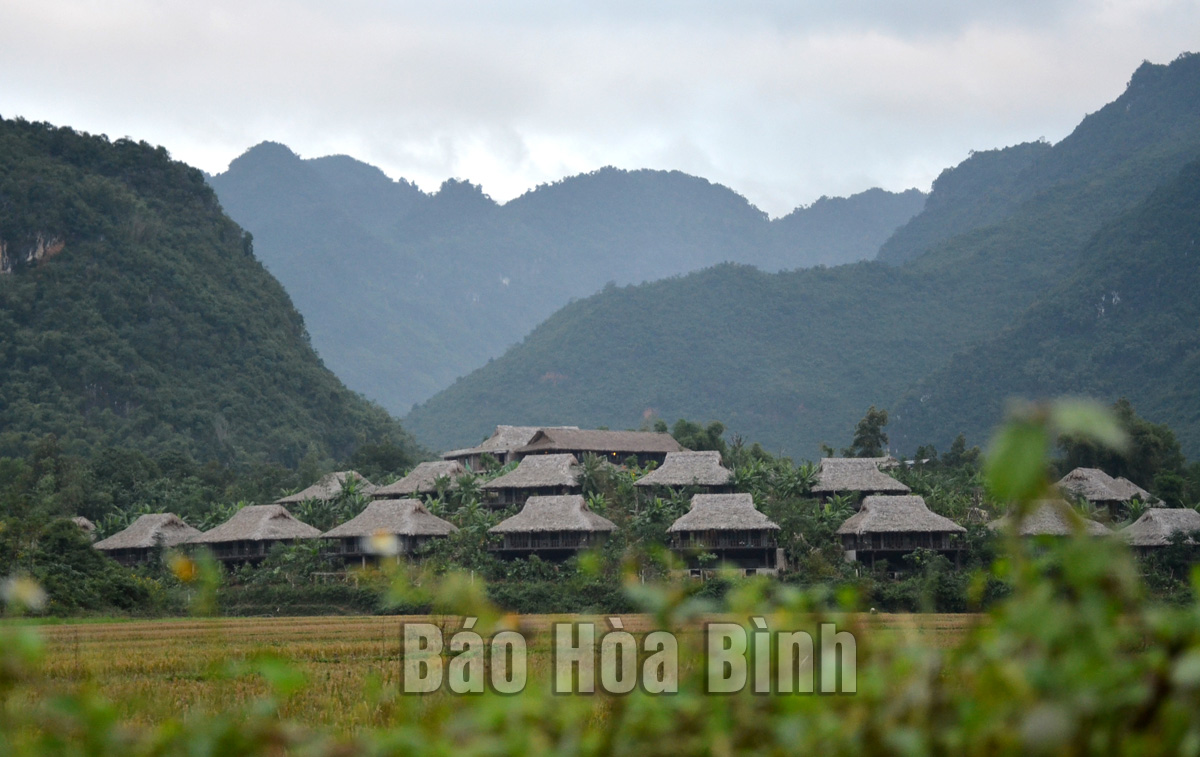
(HBO) - There is great potential for tourism development in Mai Chau district as the locality boasts beautiful landscapes, a favourable geographical location and cultural identities and values, said Tran Van Truyen, deputy head of the district’s division of planning and finance.
Photo: Many high-class resort tourism projects have been put in operation in Na Phon commune (Mai Chau district) for many years.
Mai Chau, a small town in the northern province of Hoa Binh,
was named by the US travel magazine Business Insider as among the top ten
incredible places for cultural tours in the world in 2013.
The locality is a destination where visitors can
admire nature’s majestic beauty, unique and wild ecosystems and the hospitality
of local ethnic minority people.
In 2016, the provincial People’s Committee
issued a plan on developing national tourism areas in Mai Chau district, which
is the legal basis and premise to manage and call for domestic and
international investors.
The tourism development in the Hoa Binh lake
area, the formation of tourism destinations and routes have helped Mai Chau
exploit advantages and lure more investment for its socio-economic development.
According to Vice Chairman of the Mai Chau
District People’s Committee Pham Van Hoan, the locality has given priory to
promoting sustainable development on three pillars of economy, society and
environment.
To realise these goals, attention will be paid
to promoting tourism development in potential areas, especially community-based
tourism, resort and eco-tourism, and adventure tourism; strengthening tourism
promotion activities and focusing on protecting the environment.
Mai Chau is hoped to become a community-based
tourism in combination area with building new-style rural areas.
Dialogues with investors will be increased to
timely address difficulties, Hoan said, adding that the local authorities will
create the most favourable conditions for investors to implement production and
business projects in the district./.
According to data from the Hoa Binh Provincial Party Committee, the industrial production index for the first six months of 2025 is estimated to have increased by 20% compared to the same period last year. This marks the highest year-on-year growth rate for this period since 2020.
In the first six months of 2025, Hoa Binh province’s export turnover was estimated at 1.145 billion USD, marking an 18.11% increase compared to the same period in 2024. Import turnover was estimated at $ 804 million, a 17.15% increase, which helped the province maintain a positive trade balance.
The lives of the ethnic minority farmers in Tan Lac district have gradually improved thanks to the new directions in agricultural production. This is a testament to the collective strength fostered through the professional associations and groups implemented by various levels of the district’s Farmers’ Union.
With the motto the "product quality comes first,” after nearly one year of establishment and operation, Muong village’s Clean Food Agricultural and Commercial Cooperative, located in Cau Hamlet, Hung Son Commune (Kim Boi district), has launched reputable, high-quality agricultural products to the market that are well-received by consumers. The products such as Muong village’s pork sausage, salt-cured chicken, and salt-cured pork hocks have gradually carved out a place in the market and they are on the path to obtaining the OCOP certification.
In the past, the phrase "bumper harvest, rock-bottom prices" was a familiar refrain for Vietnamese farmers engaged in fragmented, small-scale agriculture. But today, a new spirit is emerging across rural areas of Hoa Binh province - one of collaboration, organisation, and collective economic models that provide a stable foundation for production.
Maintaining growing area codes and packing facility codes in accordance with regulations is a mandatory requirement for agricultural products to be eligible for export. Recently, the Department of Agriculture and Environment of Hoa Binh province has intensified technical supervision of designated farming areas and packing facilities to safeguard the "green passport" that enables its products to access international markets.



